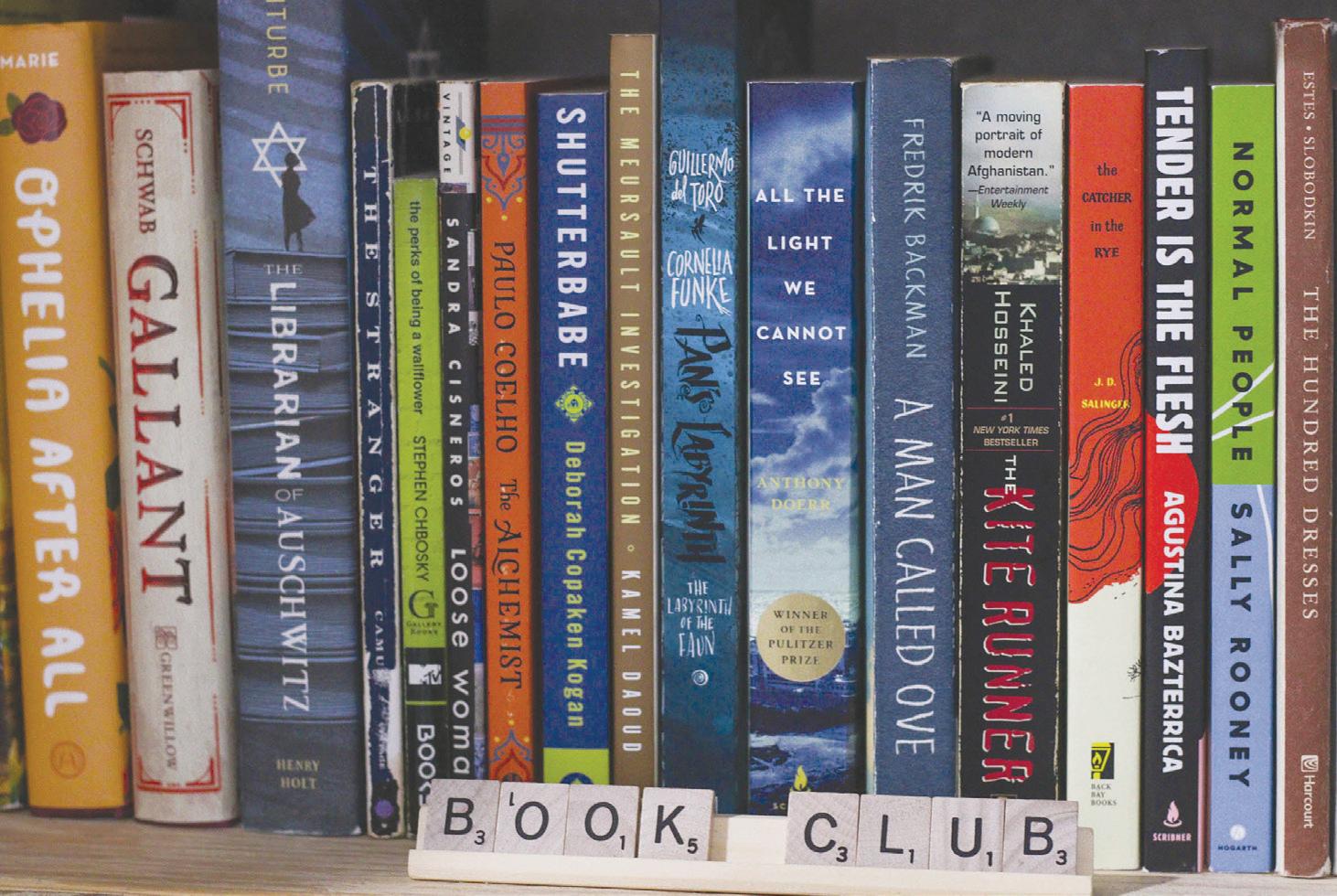
4 minute read
To Kill a Banned Book
BY SAMMY JOHNSON Reporter
The problem with children being exposed to obscene material via literature all boils down to desensitization.
Advertisement
To limit and decrease desensitization in children, schools should ban books that are inappropriate and violent.
No, it is not theorized by any reputable research organization that children will directly act on violent or sexual activities seen or read about in the media. This subject has been queried and proven time and time again to be completely false.
One such instance of this theory being disproved is a United States Department of Education report that states that only 24% of perpetrators of school shootings had shown interest in violent books.
Children who read a book where someone gets decapitated will not immediately want to go around decapitating people.
However, it is highly likely that a child reading about this aforementioned depiction of decapitation has taken their first steps out of a few dozen towards being used to hearing about violence and, eventually, would just not care about violence anymore.
Children have developing brains, and it is necessary to be raised to be sensitive to “adult” themes as this helps to develop class.
An article by the Institute for Family Studies said that the content consumed can affect the level of desensitization experienced.
“What was once shocking eventually barely registers. Like a drug, the more violence and sexual content we take in, the more of it we need to get the same shock factor.”
This means that children who expose themselves to shocking literature could get desensitized at an exponential rate.
Not only does obscenity in literature cause children to be desensitized at too young of an age, it also can cause children to develop aggressive behavior. As stated before, reading about obscene activity does not cause children to mimic said obscene activity, but it can, in fact, affect the child reader’s behavioral patterns.
A Brigham Young University research team led by Professor Sarah M. Coyne has divided aggression into two types: physical and relational.
The research team conducted an experiment that divided a group of 67 university students in two. Both read a short story about a college freshman and roommate having a disagreement. The first half of the group read a version of this story that ended with the two college students getting into a physical fight, and the other half read an alternate version that features the freshman filming her roommate breaking the dorm rules and threatening to post the video on Youtube.

The 67 students were all interrupted while reading the story by emails from a “partner” that was actually a computer program. The computer program repeatedly and aggressively told each group students read poetry. CSULA also celebrates diversity and inclusion with book fairs that educate students on literature from authors representing underrepresented groups. The Pierce Library could host similar events with the help of faculty and staff, with experts in various fields leading discussions and workshops. member to “hurry up,” among other things. After finishing the story, each participant played a game with the computer program, sounding a sort of buzzer after winning a round of the game.
Library workshops and events could encourage students to come to campus when they normally may not have a reason to. Hosting in person events could also help Pierce College start to revitalize its campus life post pandemic. Campus events have also been linked to better retention rates and grades for students.
The students that read the physical aggression variant of the story were more physically aggressive towards the computerized partner, sounding the buzzer louder and for longer periods of time. So technically, the subject of obscenity in literature boils down not only to desensitization, but also to how it affects behavior. While reading obscene material won’t directly cause children to be serial killers, it can introduce to them a level of aggression and desensitization that shouldn’t be present in people that young. Therefore, it is necessary to withhold certain material from young people whose minds are still developing.
In what seems like a page from Ray Bradbury’s dystopian novel “Fahrenheit 451,” schools and universities across the United States have banned countless books from their catalog this year.
First Amendment activists have criticized state legislators for banning certain books, regardless of the political side that advocated for the banning. Books are means for attaining more such a large amount of beloved books suddenly restricted and then banned from access to students. knowledge, but, more importantly, they are fundamental in bringing awareness to past struggles, problems and losses in history.
According to a Guardian article, the American Library Association (ALA) said that from September to November 2021, more than 330 books were reported for banning, which was over double the number for the entire year of 2020.
Both sides of the political aisle have shared their dislike with the book banning. Conservatives claim the act is unlawful because it infringes on the First Amendment, and progressives claim that targeted books tackle topics including past struggles of slavery, bigotry and social injustice, and leads to less awareness and more inequality moving forward.
According to a New York Times article from March 2022, author Laurie Halse Anderson said that attacking the books, authors and therefore subject matter is a means to removing any possibility for discourse.

“You are laying the groundwork for increasing bullying, disrespect, violence and attacks.” Anderson said.
School faculty members and civil rights activists agree that the surge in banning books is detrimental to the health and awareness of America’s next generations.
According to a Guardian article from March 2022, “Maus” author Art Spiegelman said that banning books leads to cultures erasing memories, which in turn would lead to the cultures doing the same thing again and again.
Without books, we are banning access to resources that may lead to conversation topics including race, gender and inequality. Books are a necessary tool to teach all generations the mistakes from the past and how to move forward in a healthy and peaceful way.
“You can’t ban books unless you’re willing to burn them and you can’t burn them all unless you’re willing to burn the writers and the readers too,” Spiegelman said.
Many American educators and faculty members were shocked to see
According to an Associated Press article from March 2022, Vera Eidelman, staff attorney with the ACLU Speech, said the problem with state legislators banning books because of definitions of vulgarity and the lack of age appropriateness is that our definitions of these topics are “mushy” and are mostly used as an excuse to allow for government control over viewpoints.

Other authors share the opinion that limited access to books only corrupts and fails the next generation of students and members of society by limiting their opportunity for societal growth from our past mistakes.
Some authors argue the position of banning books is led by a feeling of humiliation of our greatest mistakes.
“The books that the world calls immoral are books that show the world its own shame,” author Oscar Wilde said.








